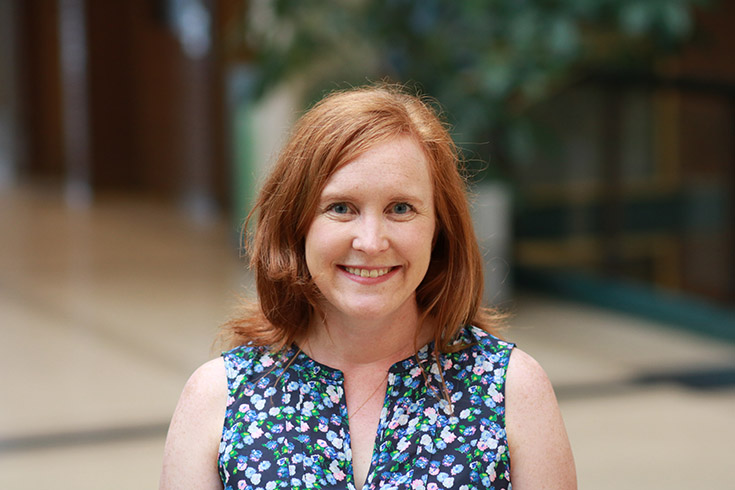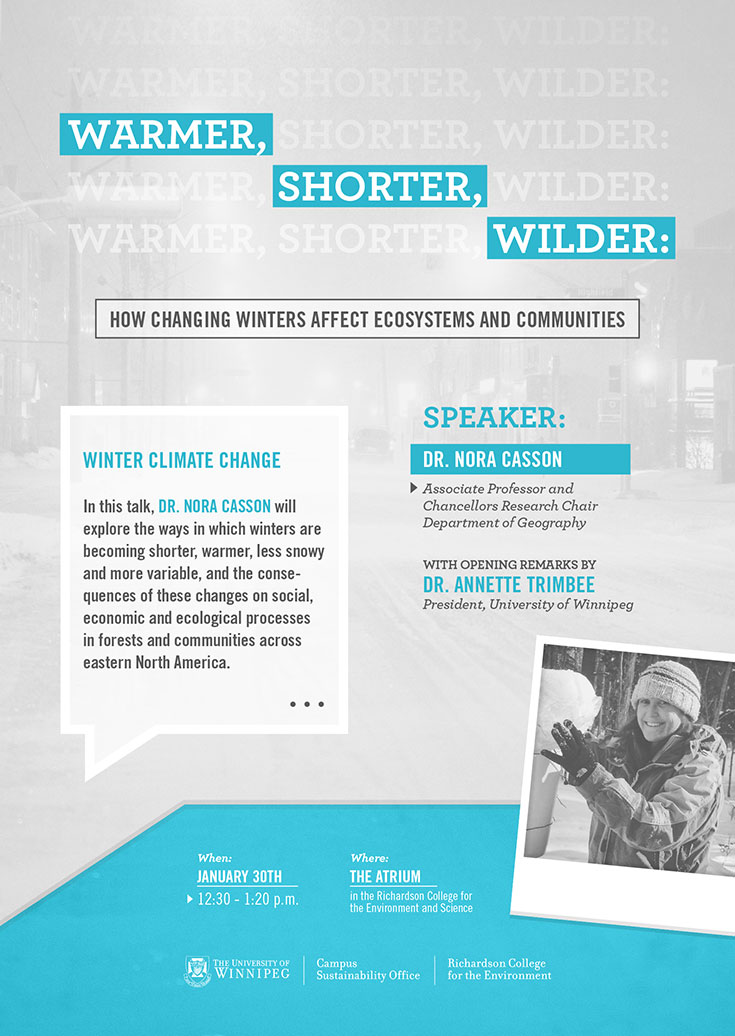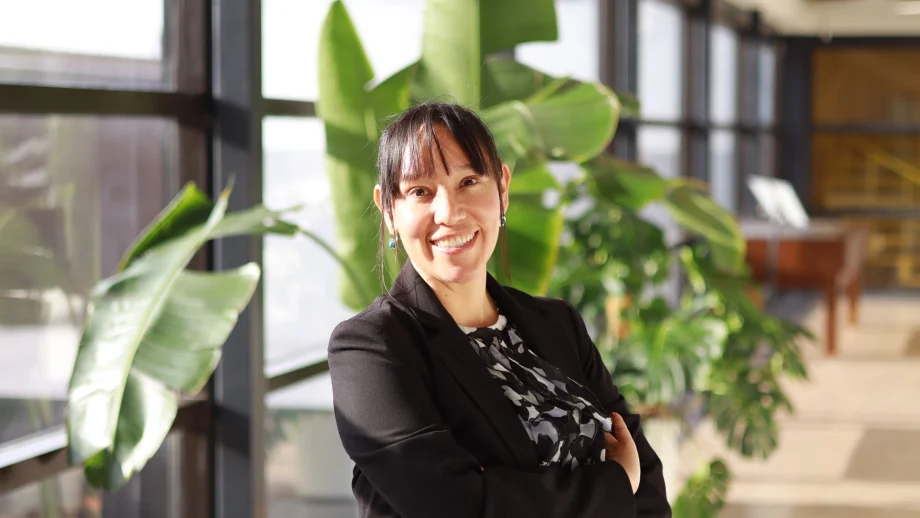
Dr. Nora Casson has been appointed as a co-director of UWinnipeg’s Prairie Climate Centre, joining environmental scientist Dr. Ian Mauro and climatologist Danny Blair. ©UWinnipeg
Winnipeg is a winter city, known for its cold climate, but our winters are being transformed by climate change. What does this mean for the future of “Winterpeg” and the communities and ecosystems in other cold-weather areas across North America?
Please join Dr. Nora Casson — associate professor and Chancellor’s Research Chair at The University of Winnipeg — for her presentation entitled Warmer, Shorter, Wilder: How Changing Winters Affect Ecosystems and Communities on Wednesday, January 30 from 12:30 – 1:20 pm in the Power Corporation Atrium at Richardson College for the Environment and Science (599 Portage Avenue).
“Climate change is a defining issue of our time,” said Casson. “As a northern city and northern country, it’s important to consider the tremendous implications a changing winter is likely to cause for everything from forests and water systems to human health and cultural activities.”
Dr. Annette Trimbee, President and Vice-Chancellor of The University of Winnipeg, will provide opening remarks at the event, which is being organized by the Richardson College for the Environment and Campus Sustainability Office.
“I’m pleased to say that faculty members at The University of Winnipeg are making a significant contribution to understanding the local, national, and global effects of climate change,” said Trimbee. “They’re producing science, engaging communities, and creating real-world solutions.”
Casson’s presentation coincides with the announcement that she has been appointed as a co-director of UWinnipeg’s Prairie Climate Centre (PCC), along with environmental scientist and filmmaker Dr. Ian Mauro and climatologist Danny Blair.
The PCC and its flagship project the Climate Atlas of Canada have become trusted sources of climate change information across the country. Their evidence-based approach — combining climate data, community-based research, and digital storytelling — supports policy, local action, and public education.
 Speaker biography:
Speaker biography:
Dr. Nora Casson is an associate professor and Chancellor’s Research Chair in the Department of Geography at UWinnipeg. Her research interests focus on how human pressures such as climate change and pollution impact terrestrial and aquatic ecosystems. In particular, she is interested in controls on nutrient cycling and water quality in forested, agricultural, and subarctic landscapes. Casson was awarded her PhD in Environmental and Life Sciences from Trent University in 2013.
Presentation Details:
Winter is a key period for the socio-ecological systems of northeastern North American forests. A growing awareness of the winter season’s importance to forest ecosystems and surrounding communities has inspired several decades of research, both across the northern forest and at other mid/high-latitude ecosystems around the globe. Still, we lack a synthetic understanding of how winter climate change may impact hydrological and biogeochemical processes and the social and economic activities they support. Casson will explore how winters are becoming shorter, warmer, less snowy, and more variable — and the consequences of these changes on logging and forest products, vector-borne diseases and human health, recreation and tourism, and cultural practices.
– 30 –
UWinnipeg is noted for academic excellence, Indigenous inclusion, environmental commitment, small class sizes, and campus diversity. UWinnipeg is committed to improving access to post-secondary education for all individuals, especially those taking non-traditional paths to university.




